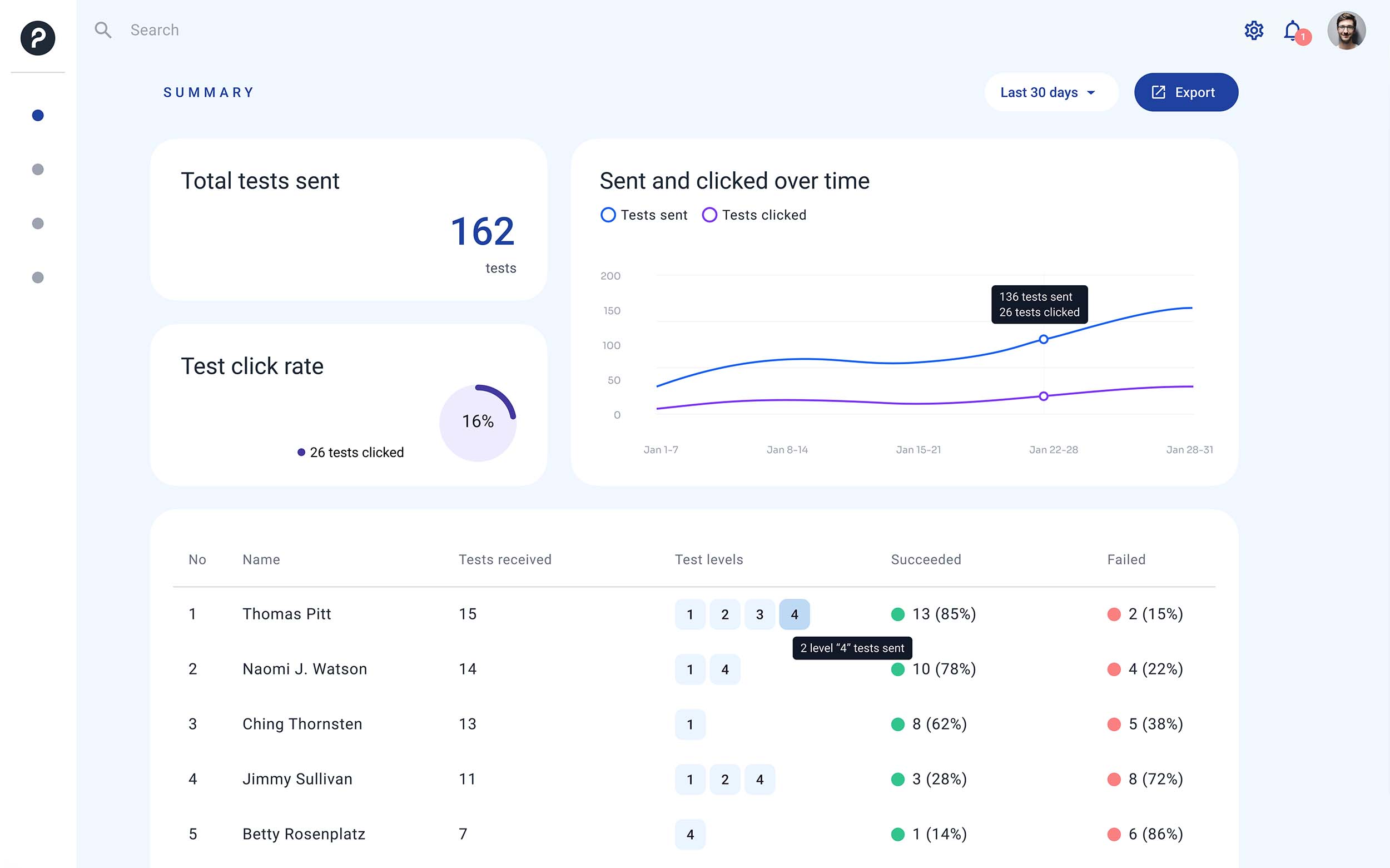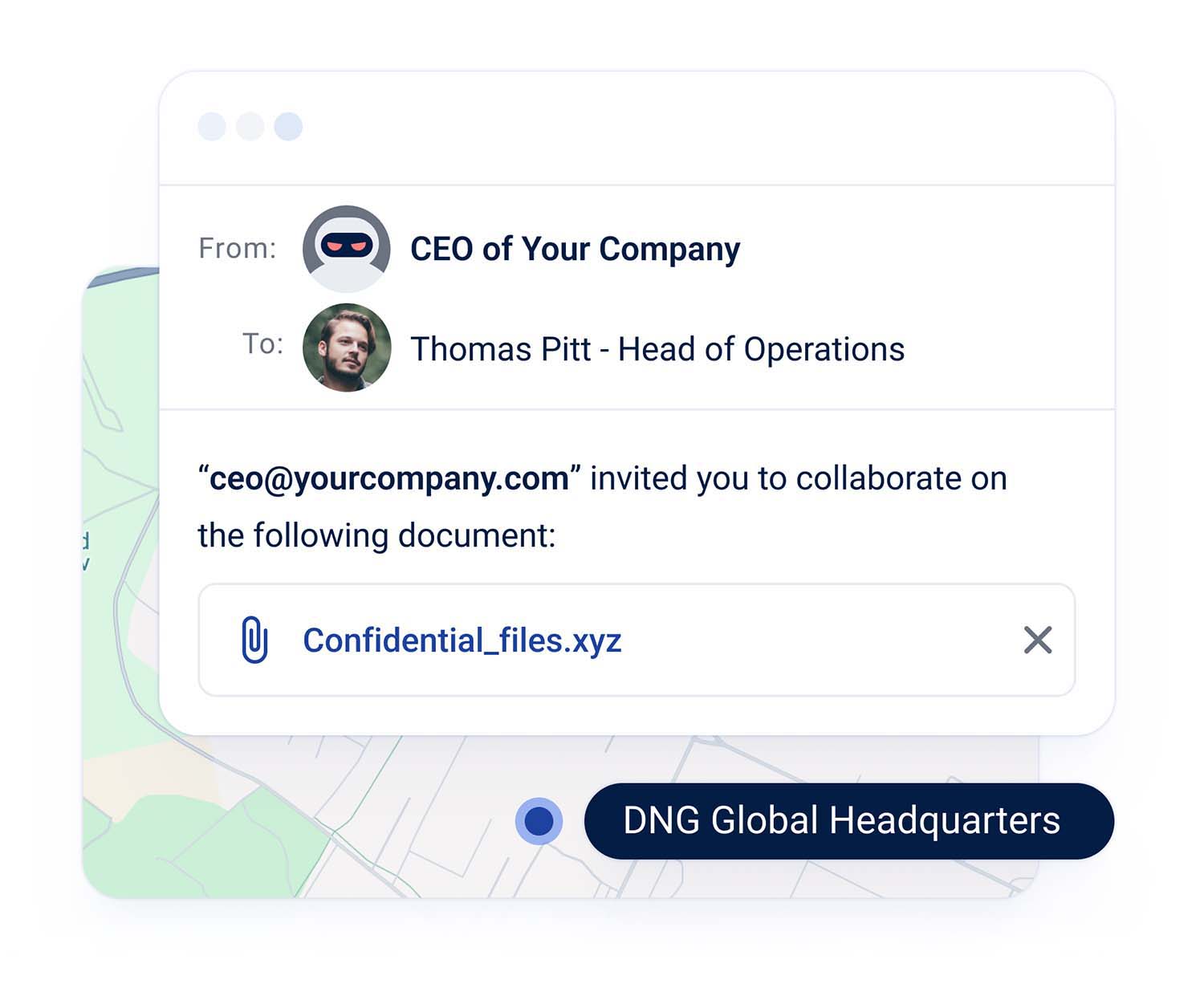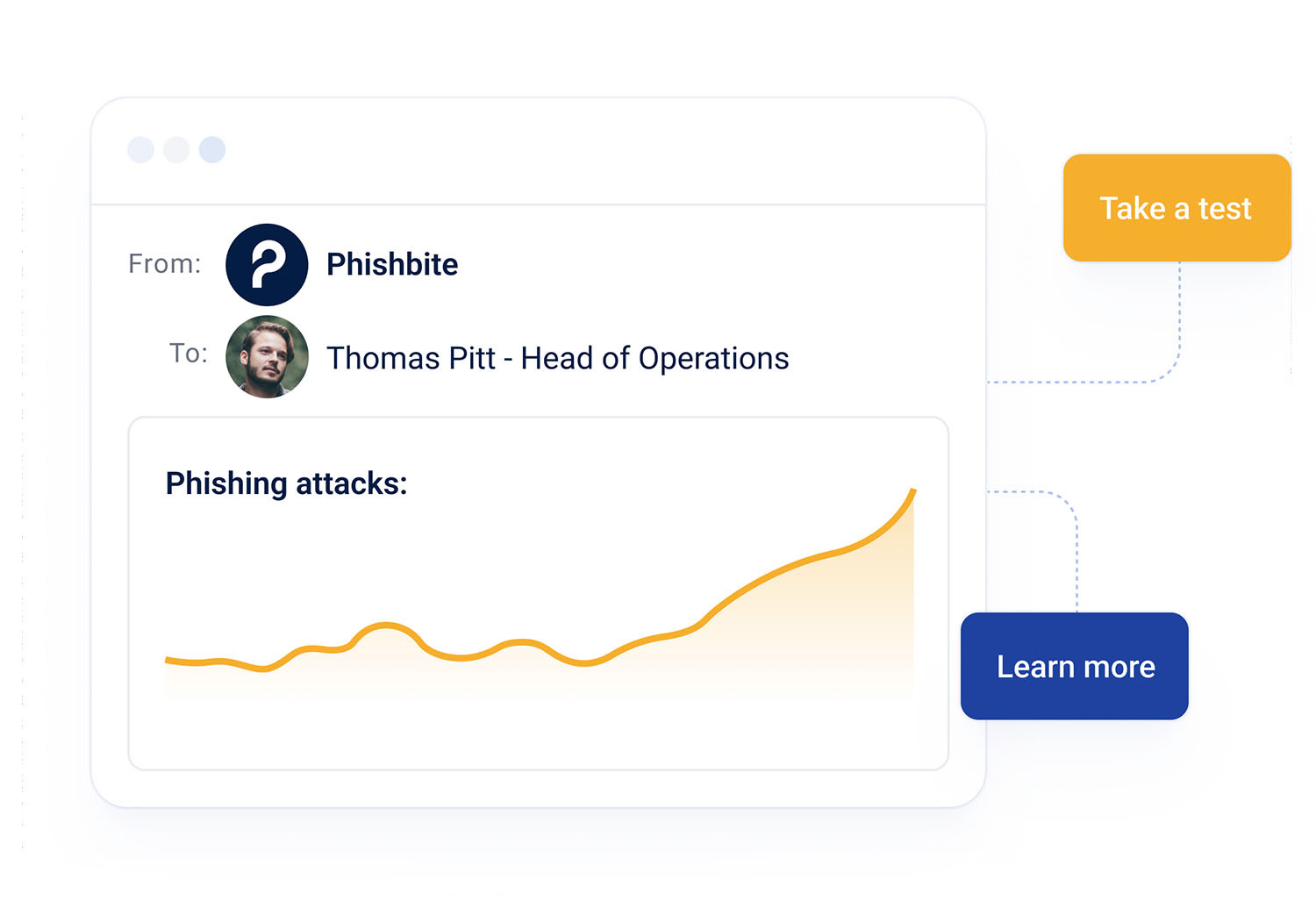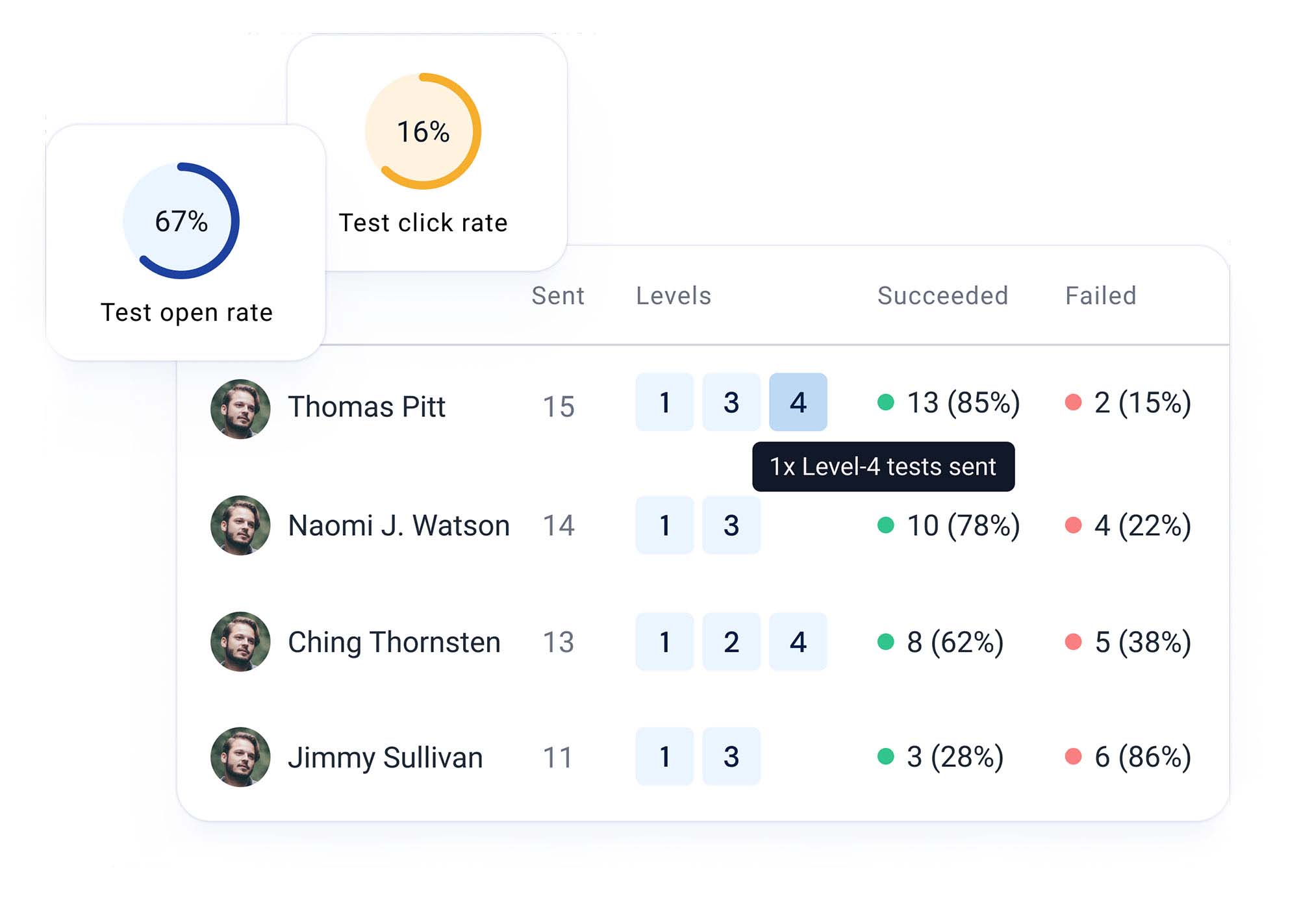




Phisbite is a phishing simulation and cyber hygiene training platform that tests employees’ cybersecurity awareness, enhances their knowledge, and provides feedback to the employer.
Phishbite provides automated sending AI-generated of personalized phishing attack simulations. We take into account company and employee profile and local cultural context just like attackers do.


Upon making a mistake, the employee is presented with guidance on how to recognise such phishing attempts in the future, thereby reducing the risk of falling victim to cyberattacks.
We provide weekly and monthly reports on the conducted phishing tests and their results, which allows for identifying the main areas of risk and mitigate them.


In addition to phishing simulations Phishbite offers bite-sized training modules on key cybersecurity practices. Topics include password and multi-factor authentication management, mobile device security, data backups, and more.
Phishbite offers a comprehensive solution for sending phishing simulations and increasing employees’ security awareness.
By using text generation algorithms, we can create personalised phishing simulations that are as realistic and effective as possible.
We ensure that the tests run automatically, eliminating the need for our clients to create and manage them.
The greatest benefit of phishing simulations is achieved through their continual implementation. One-time tests do not educate or increase employee vigilance as effectively as ongoing simulations.
We constantly incorporate new methods used by cybercriminals into our tests.
Our tests provide immediate feedback to the user, helping to instantly improve security awareness.
Phishing attacks are the most common form of cybercrime and AI-based text generation algorithms have made phishing attacks much more effective.
are made by using email Read more about "91% of all cyber attacks begin with a phishing email to an unexpected victim"
are sent daily for phishing purposes Read more: "Three billion phishing emails are sent every day. But one change could make life much harder for scammers"
in U.S with phishing attacks in 2022 Read more: "In 2022, there were 300,497 phishing victims with a total loss of $52,089,159 in the U.S"
by phishing attacks in 2023 Read more: "Email Nightmare: 94% of Firms Hit by Phishing Attacks in 2023"

Start educating your team now and follow up phishing tests with useful materials.
Cancel any time.
At Phishbite, our mission is to empower organizations to defend against cyberattacks and reduce their risks.
We are at the beginning of our journey with Phishbite and have been part of the Tehnopol Cyber Accelerator program since September 2023. Our SaaS platform is being developed with the support of the European Cyber Competence Centre and its members.


The founders of Phisbite have extensive experience in the security field. They have been with SK ID Solutions, contributing to the development and operation of the EID infrastructure in Estonia, Latvia, and Lithuania
Alan Paller
founder of the SANS Technology Institute
Michael Dell
Founder, chairman, and CEO of Dell Technologies
Bruce Schneier
American cryptographer, computer security professional
All questions you might have about phishing and our service
A phishing is a type of cyber attack where a criminal tries to trick the victim into sharing sensitive information about themselves or their employer by pretending to be a trustworthy person or organization. This is mostly done through email, but phishing attempts through text messages, phone calls, or social media are becoming more common.
Attackers look for access to confidential data and try to gain entry into an organization’s information systems. Often, a simple human mistake by an employee can make such an attack possible. Your organization’s information and customer data can be valuable for identity theft, fraud, extortion, or for selling on the dark web.
Phishing simulations are exercises where organizations send their employees safe, but realistic phishing emails to test their ability to recognize phishing attempts. These help evaluate the company’s cybersecurity hygiene level and raise employee awareness.
Employees often are the first and last line of defense against cyber attacks. Informed employees can recognize and avoid phishing attempts, protecting both their own and the company’s valuable information.
Create an account to access Phishbite services. You can cancel your subscription at any time. No credit card is required. A 14-day trial starts after activating the service.